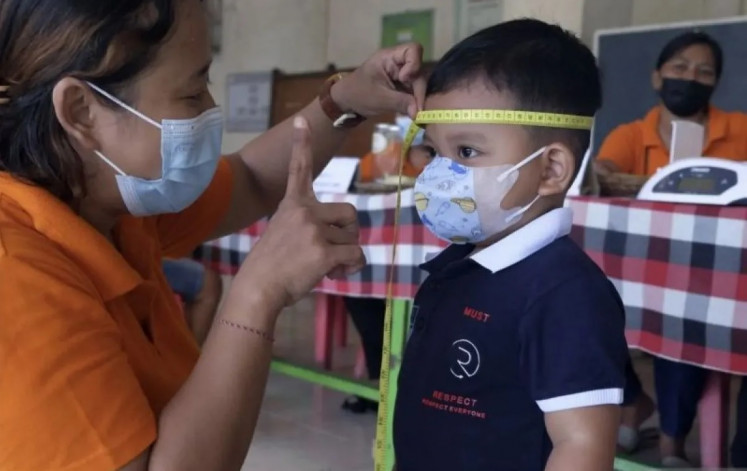Uphill battle for new political parties in 2019
With major political parties having carved out their own electoral niche in the successive general election in the post-Reformation era, four new political parties registered by the General Elections Commission (KPU) will likely face an uphill battle to gain electoral success
Change text size
Gift Premium Articles
to Anyone

W
ith major political parties having carved out their own electoral niche in the successive general election in the post-Reformation era, four new political parties registered by the General Elections Commission (KPU) will likely face an uphill battle to gain electoral success.
Following the KPU’s decision on Sunday to allow 14 political parties to contest the 2019 general election, four new parties — the Indonesia Solidarity Party (PSI), the United Indonesia Party (Perindo), the Garuda Party and the Berkarya Party — will challenge 10 established political parties, which already have a head start in the race.
Of the four, it appears that the PSI will be the only new party that could give older political parties a run for their money.
Its telegenic chairwoman, Grace Natalie, a former popular news anchor, and a long list of fresh-faced candidates as well as political platforms are designed to draw the interests of young voters, which include corruption eradication and environmental protection. Analysts have considered the PSI a breath of fresh air that could get more votes from young members of the electorates, those who are under 35, a demographic group expected to reach around 100 million in 2019.
To give a face to the youth-oriented programs, the party has enlisted pop singer Giring Ganesha, young legal activist Rian Ernest, known as a lawyer for then-Jakarta governor Basuki Tjahaja “Ahok” Purnama, and young Muslim intellectual Guntur Romli, as some of its legislative candidates.
The party has also leaned toward supporting President Joko “Jokowi” Widodo, still a popular politician among younger voters, a strategy that could further its popularity if not electability.
“The PSI is a party of the young generation. That is one of our breakthroughs in politics. In addition, we hold a very transparent recruitment of legislative candidates,” said 22-year-old PSI central board member Tsamara Amany.
Even with its youth-oriented strategy, the PSI will still face a struggle in getting votes from young people, given that established parties also already have their own youth wings that have built strong networks in the regions.
“Old parties already have deep roots built by their youth wings. New parties, meanwhile, still have very weak political machines [and] no experience in legislation and the bureaucracy. It will be difficult for them to challenge these old parties,” said political observer Arya Fernandes of the Centre for Strategic and International Studies (CSIS).
Other new political parties like Perindo, controlled by media mogul Hary Tanoesoedibjo, have failed to zero in on who its audience would be.
Perindo central board member Arya Sinulingga said the party aimed to get voters from members of religious groups, such as Nahdlatul Ulama (NU) and Muhammadiyah. But to boost its populist credentials, the party has run ads on Hary’s media network touting its promise to help the poor and the marginalized.
Two other parties, Berkarya and Garuda, would likely peddle New Order nostalgia.
Behind Berkarya is Hutomo Mandala Putra, the youngest son of former president Soeharto, while Garuda is led by Ahmad Ridha Sabana, former president director of Indonesia Education Television (TPI), now known as MNC TV. TPI was once run by Siti Hardianti Rukmana, Soeharto’s eldest daughter, before being taken over by Hary’s media group Media Nusantara Citra.
Arya said these two parties would only be able to steal voters from Golkar, but added that beating Golkar would be a long shot.
“The 2019 elections will be difficult for the parties to gain significant votes. Not all of them will pass the parliamentary threshold,” Arya said.









